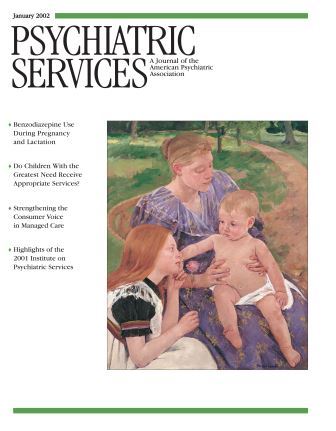Prevalence and Severity of Mental Health-Related Disability and Relationship to Diagnosis
Abstract
OBJECTIVE: Psychiatric disability has been defined largely from measures that focus on serious mental illness. This practice may have led to substantial underestimation of the total impact of mental disorders on community health. In this study a generic measure of mental health-related disability was used to examine disabilities attributable to various common mental disorders. METHODS: Data were drawn from the Australian National Survey of Mental Health and Wellbeing, a household survey of 10,641 adults that assessed participants for 14 DSM-IV disorders with use of the Composite International Diagnostic Interview. Screening instruments were used to identify likely cases of ICD-10 personality disorder, neurasthenia (an undifferentiated somatoform disorder), and psychosis. Mental health disability was assessed with the Medical Outcomes Study 12-item Short Form (SF-12) mental health summary scale, which was administered to all participants. RESULTS: Disability was significantly greater among participants with a current psychiatric diagnosis, and disability varied by type of disorder. Diagnosis remained a strong predictor of disability after sociodemographic factors and physical illness were controlled for. Disorders found to be independently associated with disability were depression, panic disorder, agoraphobia, social phobia, generalized anxiety disorder, alcohol dependence, and drug dependence. CONCLUSIONS: Substantial proportions of persons with mental disorders that are not usually classified as major mental disorders reported moderate and severe disability. A generic measure of mental health-related disability was able to detect variations in disability among persons with different diagnoses. Although such a measure is not as sensitive as a disorder-specific measure developed for use in psychiatric populations, it can facilitate comparison of disability across common mental disorders.



